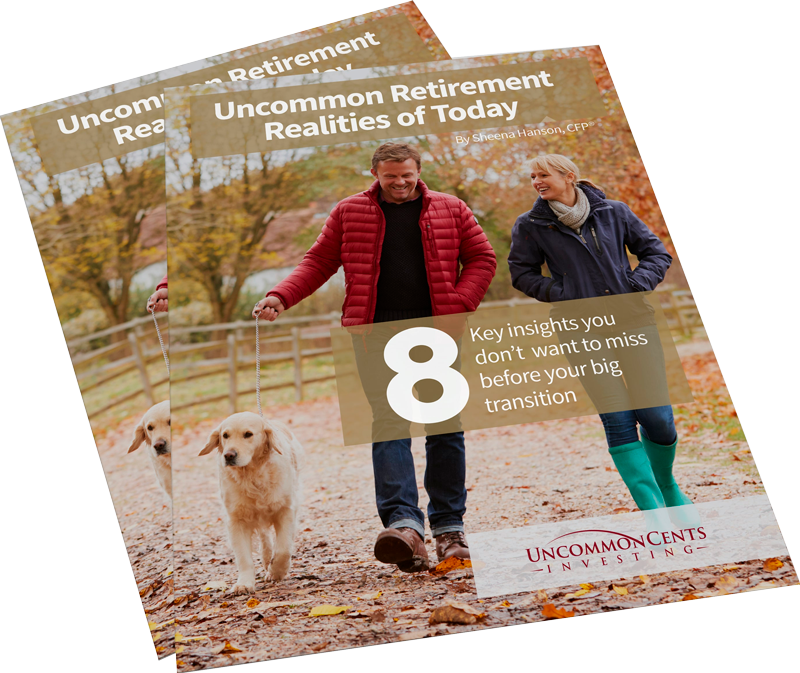With inflation at its highest point in 40 years, it would only be natural to see people holding tight to their jobs. After all, you need your paycheck more than ever with the increasing cost of groceries, right?
We know that’s not the case, though. More Americans are retiring now than ever before. While the pandemic is a major contributor to the situation, the Great Resignation was in motion long before anyone had heard of Covid-19.
The Great Resignation is a term used to describe the large number of people who have left the workforce over the past several years. It’s not just baby boomers who are opting to retire, either. People of all ages are quitting their jobs without clear intent of returning to the workforce.
Every individual will have their own set of scenarios they’ve had to balance before deciding on retirement. However, there are a few economic and social undercurrents in our society that have been particularly influential in recent years.
The Cost of Living vs. Wages
Inflation has walloped Americans’ budgets at a pace many people haven’t seen in their lifetime. The cost of living has steadily and rapidly increased while wages have not kept pace. While this disproportionate growth has been a reality for quite some time, it’s become more extreme in recent years due to the pandemic and a wild housing market.
All of that is a long way to say that people are frustrated.
Many people are working in conditions that may have been tolerable in a pre-pandemic world but are now unbearable. They don’t feel safe going into an office due to preexisting conditions. They’re exhausted from caring for their children who couldn’t get vaccinated while also working full time from home or the countless other circumstances people may be facing.
Whatever the situation, the cost of living equation has shifted to where the tradeoff isn’t there anymore for some people, prompting them to leave the workforce.
Rethinking Retirement
People are rethinking the concept of retirement. In the past, the idea was simple: you work for 40-50 years, then you stop working and enjoy 5-10 golden years. But, of course, things have changed quite a bit since then. People are living much longer, for one thing, and advances in technology have given rise to opportunities for people to work well into their golden years if they choose.
The old model doesn’t make as much sense anymore, and people are increasingly deciding to ease into retirement sooner rather than later. The thinking is novel–why wait to enjoy life when you could be doing it now? It would seem this could only be reserved for the wealthy, but a few factors have made this type of lifestyle possible.
The Rise of Freelance and Gig Work
Many people are finding that they don’t necessarily need the traditional career to get by, instead adjusting their cost of living and working jobs that are lower stress or interest-based to get by. The pandemic spurred spectacular advances in the ability to work remotely. With an ever-growing variety of platforms and services to help facilitate this type of work, like UpWork, Fiverr, DoorDash, Uber, and more, it’s become much easier for people to find opportunities to earn money with gig work.
While younger individuals more embrace the gig economy, they aren’t the only ones making money on demand. A 2021 study by Pew Research showed that 30% of 18-29-year-olds have earned money through gig work, with 18% of people aged 30-49 doing the same.
Not only is this work generally lower stress, but it also offers a level of flexibility that can be difficult to come by in a full-time job. That’s a gamechanger for many people who want to retire but can’t commit to doing so full time.
Greater Individual Wealth
When the world turned upside down as Covid-19 took hold, many people responded by pulling back on their spending. As a result, there were times when the amount Americans were saving nearly quadrupled.
The pandemic came near the end of an 11-year bull market. Many people had already seen their retirement savings increase due to a booming stock market, and as a result, were in a much better position going into the pandemic.
Then, many people leveraged the government stimulus funds and enhanced unemployment benefits to pay down debt and increase their savings. With pandemic relief still ongoing in many states, this has all given rise to a new class of people who found financial freedom and flexibility to choose when and how to work. For some, that meant retiring early.
Redefining Priorities
Perhaps the biggest driving force behind more Americans retiring now than ever is a shift in priorities. The pandemic has forced everyone to reevaluate what’s important in life, and for many people, that has meant valuing their time and wellbeing over money.
Work can be a major source of stress in our lives. With so much uncertainty in the world, it’s not surprising that people are choosing to walk away from careers that are causing them anxiety and instead focus on what brings them joy.
What’s Next?
It remains to be seen what the long-term effects of the pandemic will be on retirement. Will more people continue to retire early, or will the economic uncertainty cause people to delay their plans? Only time will tell.
In the meantime, it’s clear that the traditional retirement model is no longer as relevant as it once was. Americans are finding new ways to fund their retirements and redefining what retirement looks like. And that just may be the new normal.


